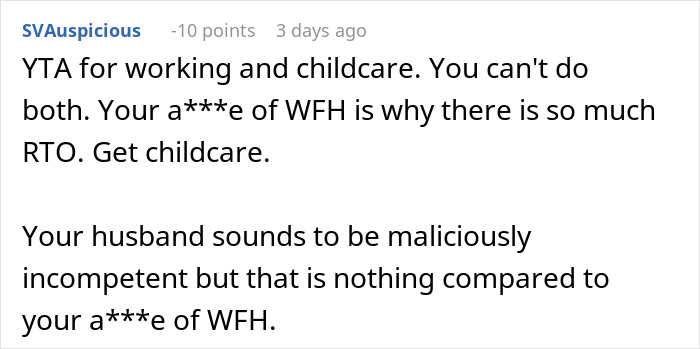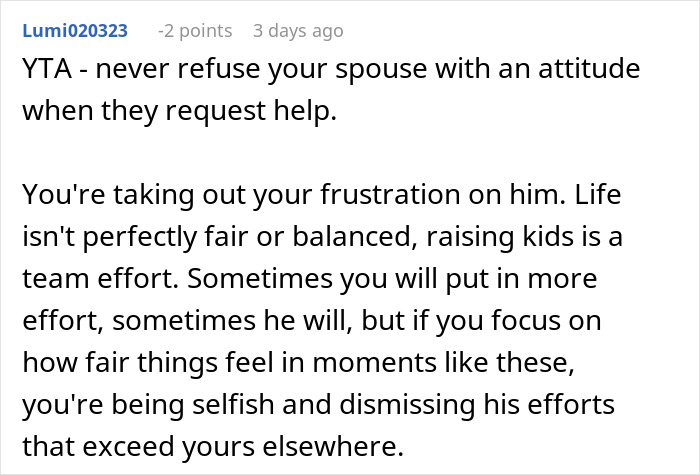There is no universal rule for how couples should tackle chores and organize their household. It’s about finding a routine that works for everyone.
Reddit user Ok-Air1597 says she and her husband have managed to do that for the most part. The only thing they cannot agree on is dinnertime, which is causing quite a bit of tension.
The woman asks him to watch the kids while she prepares the food; however, the dad complains that it’s just too much.
A two-parent household thrives when both of them work together

Image credits: Freepik (not the actual photo)
But this mom says she lacks support from her husband
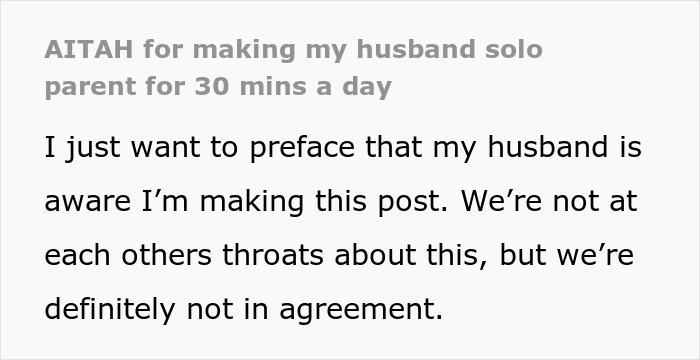

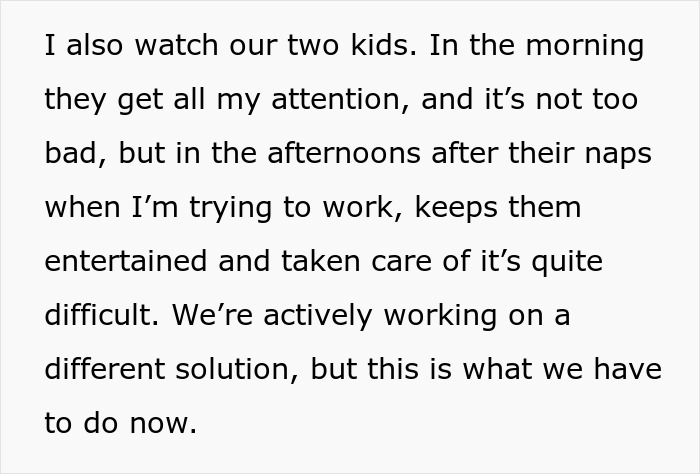
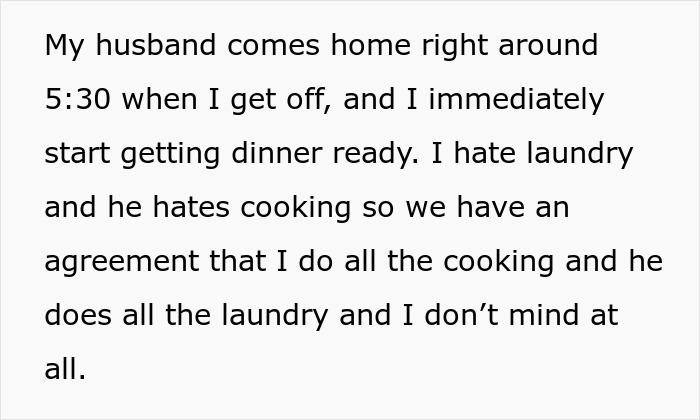
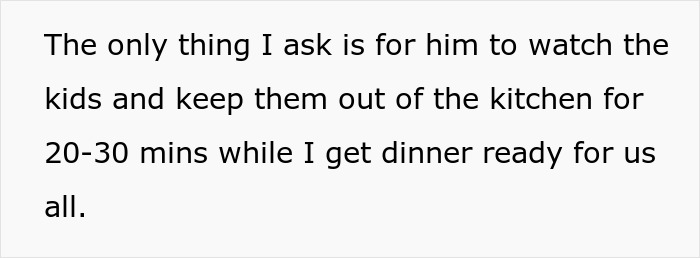
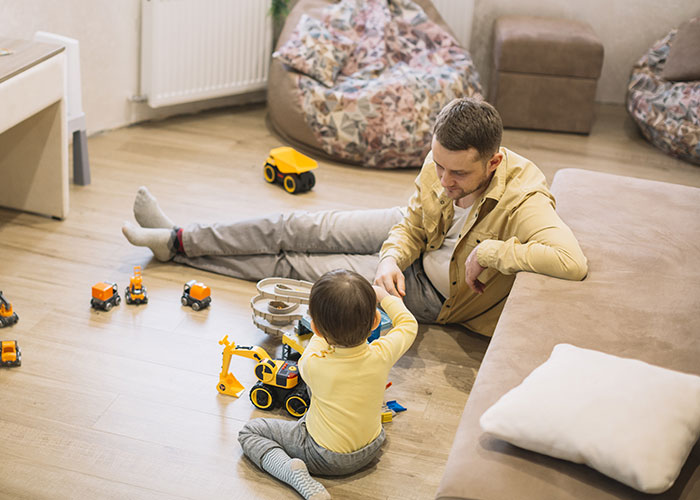
Image credits: Freepik (not the actual photo)
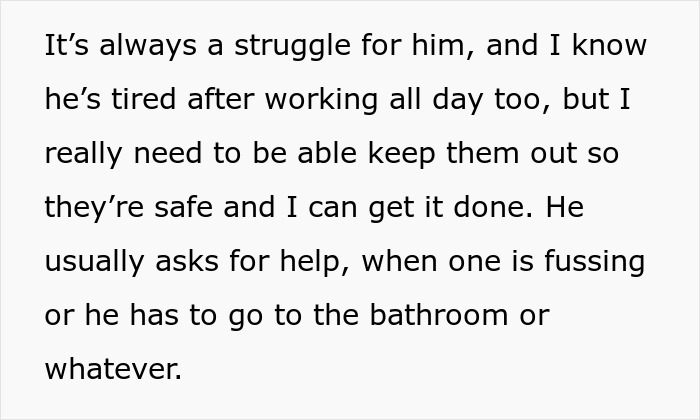
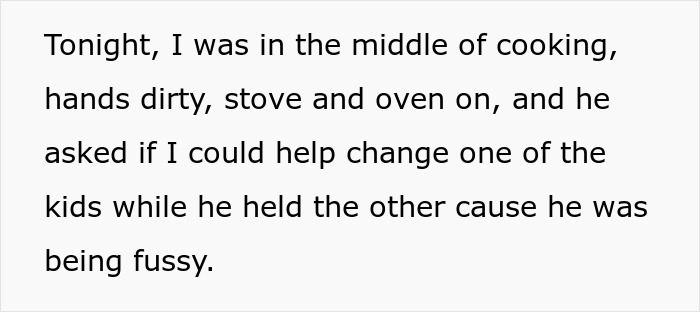
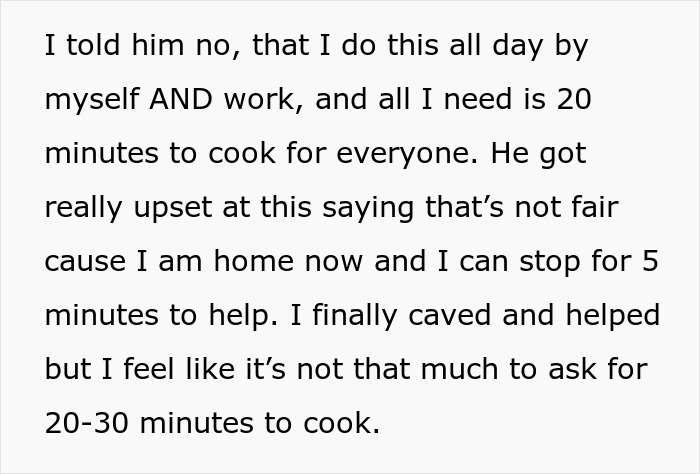
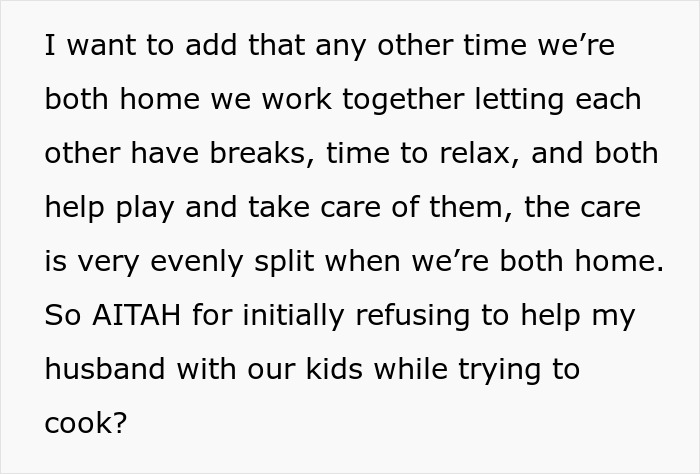
Image credits: Ok-Air1597
It’s true that in heterosexual relationships, women usually do more housework, but a fair routine would benefit both parents
Nigel R. Bairstow, Ph.D., is a researcher and academic at the University of Technology Sydney, Australia, and his primary focus is alienation theory, examining its effects on individual and collective well-being.
According to him, balancing professional obligations and childcare responsibilities can be stressful for mothers.
“Numerous studies have demonstrated that working mothers frequently experience greater levels of stress and fatigue compared to their male counterparts due to the ‘double burden’ of domestic responsibilities,” Bairstow writes.
For example, researchers Senhu Wang and Cheng Cheng at the National University of Singapore found that, among heterosexual couples in the UK, women working remotely consistently spent 4–8 more hours per week on housework than their male counterparts under the same arrangements.

Image credits: The Yuri Arcurs Collection/Freepik (not the actual photo)
Tasks such as shopping, cooking, cleaning, and laundry were primarily performed by women in 43–71% of couples, whereas men undertook these duties in fewer than 20% of cases.
“The impact of this imbalance extends beyond individual stress levels and affects the couple’s relationship dynamic. When both partners are constantly juggling responsibilities, it’s easy for their relationship to take a backseat. Over time, this relationship neglect can lead to feelings of alienation, where partners no longer feel as connected or supported by one another.”
The couple and their kids would be better off if they found a way to settle their differences.
“A robust and supportive partnership provides a stable environment for children, fostering their emotional and psychological well-being. Children who witness healthy, loving relationships learn valuable communication, empathy, and conflict resolution lessons,” Bairstow adds.
When partners go the extra mile for each other, they shouldn’t consider it a sacrifice. If they both put in the effort, they both benefit.
“Nurturing your relationship leads to greater intimacy, satisfaction, and resilience. It helps build trust and support that can help you weather life’s turbulent challenges. Couples can ensure their relationship bond remains strong by putting each other first.”
A lot of people who read her story support the mom and say that her husband is weaponizing his incompetence against her

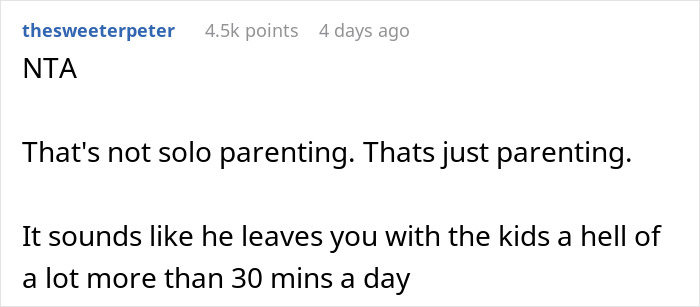
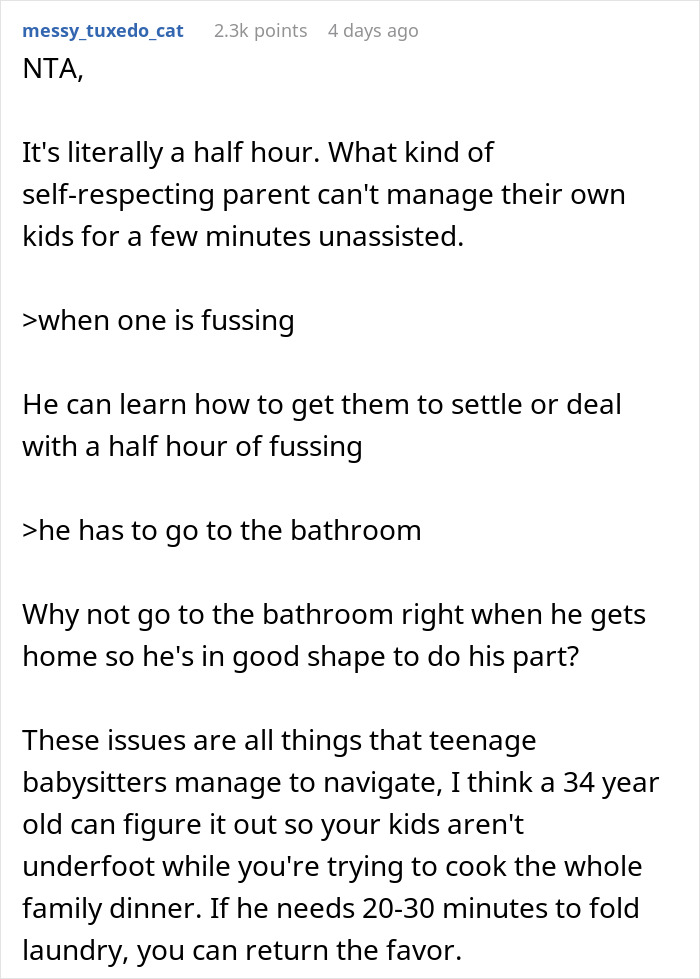
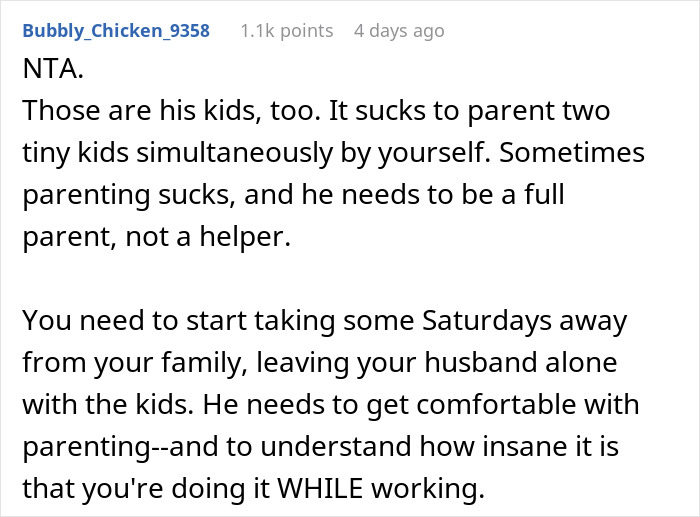
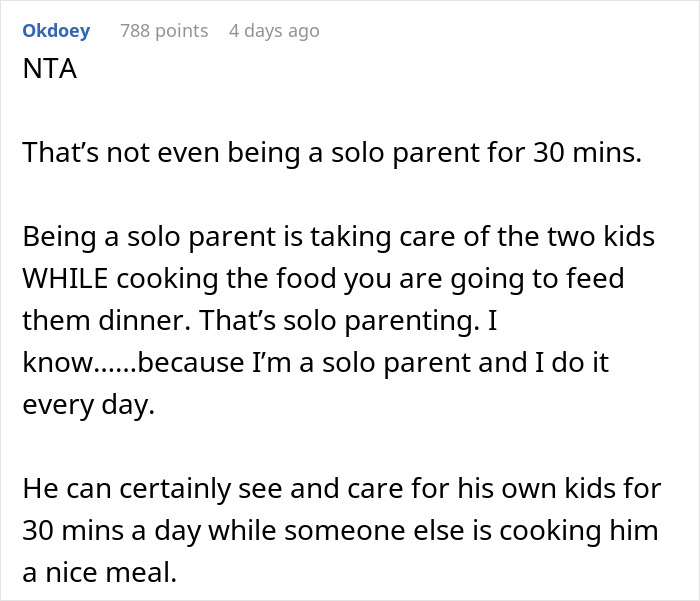
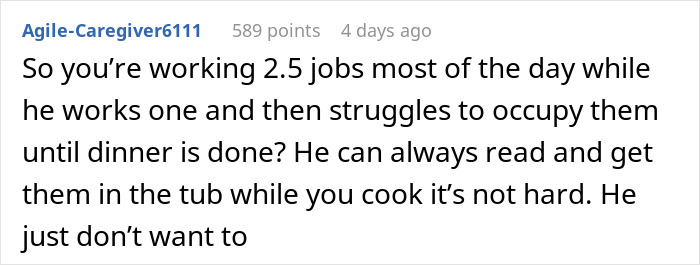
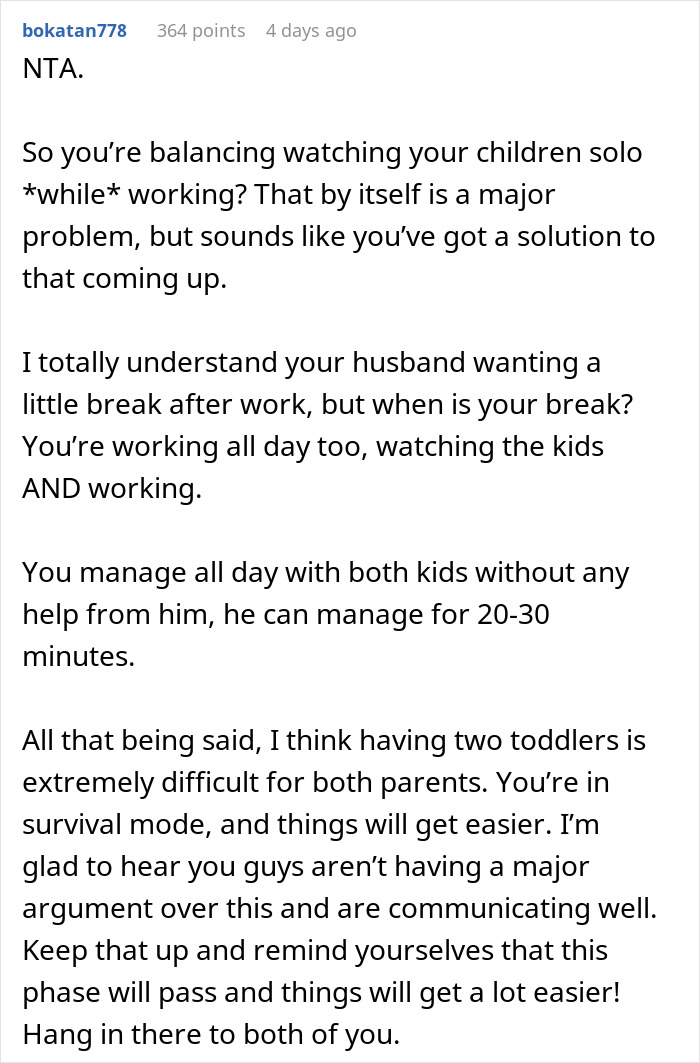
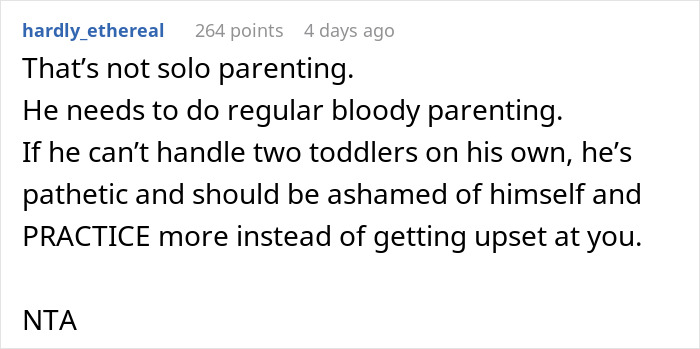


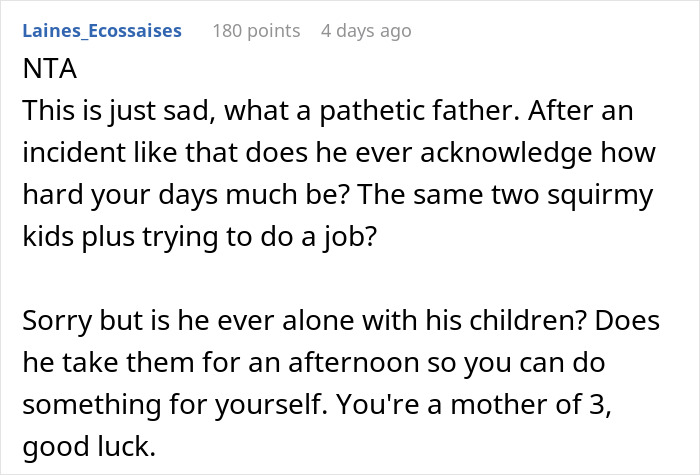

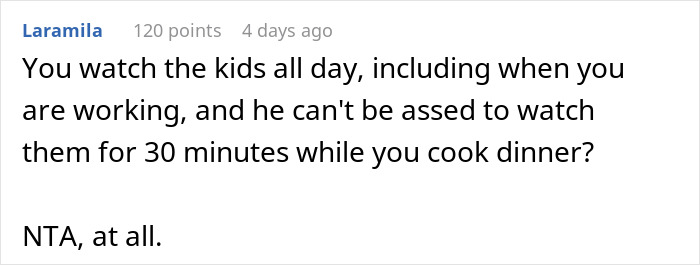
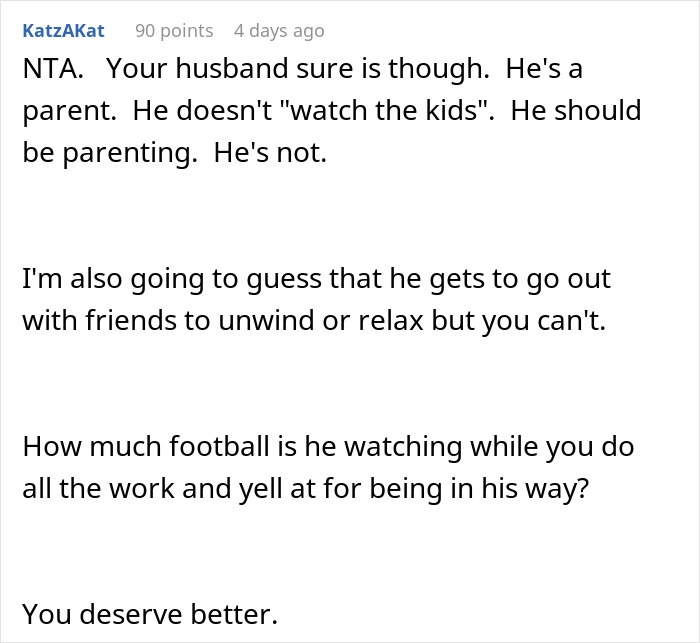

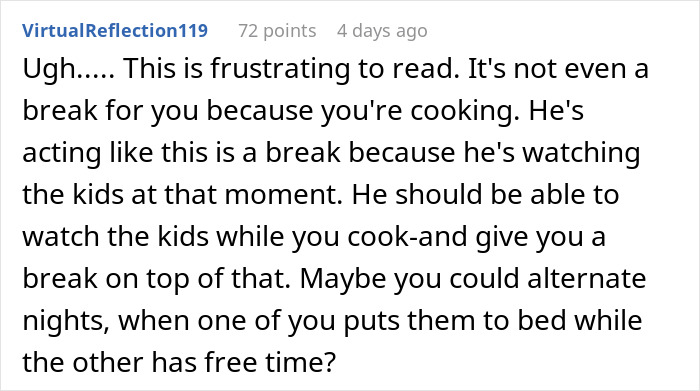


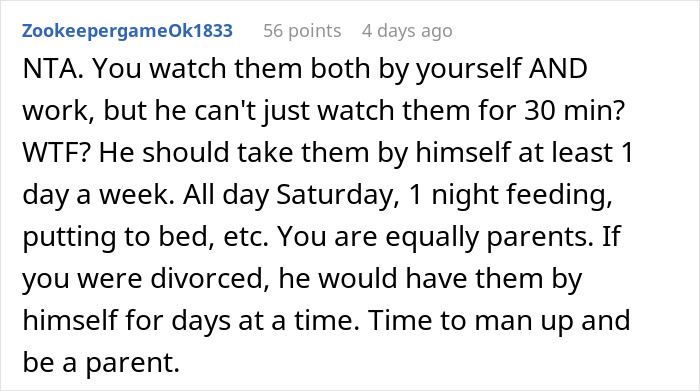

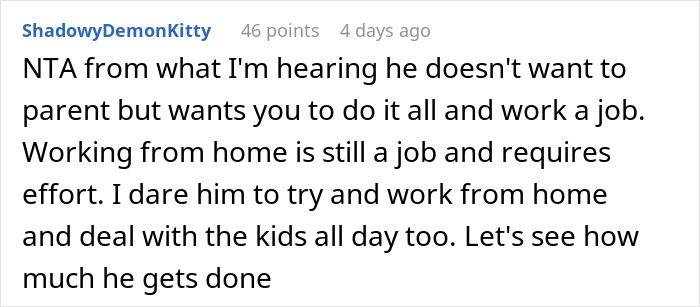
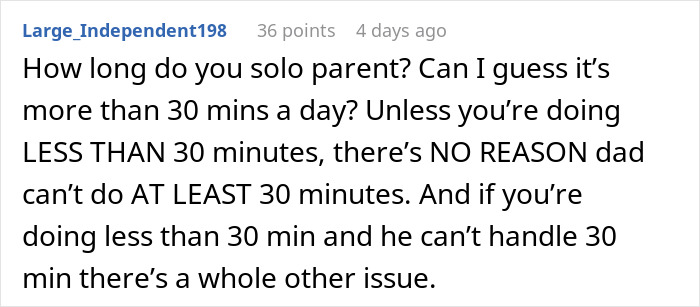
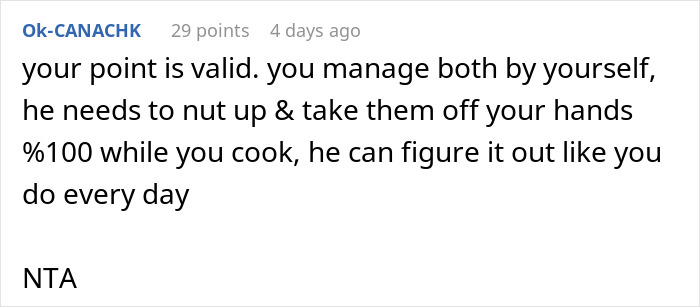
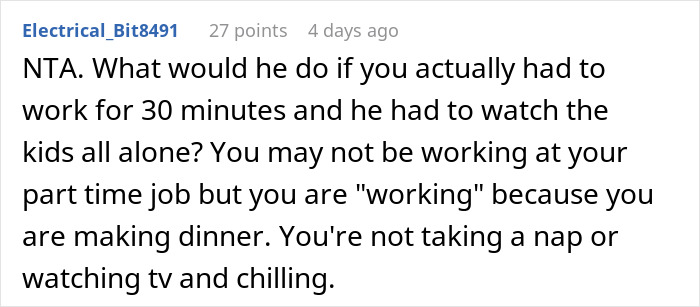
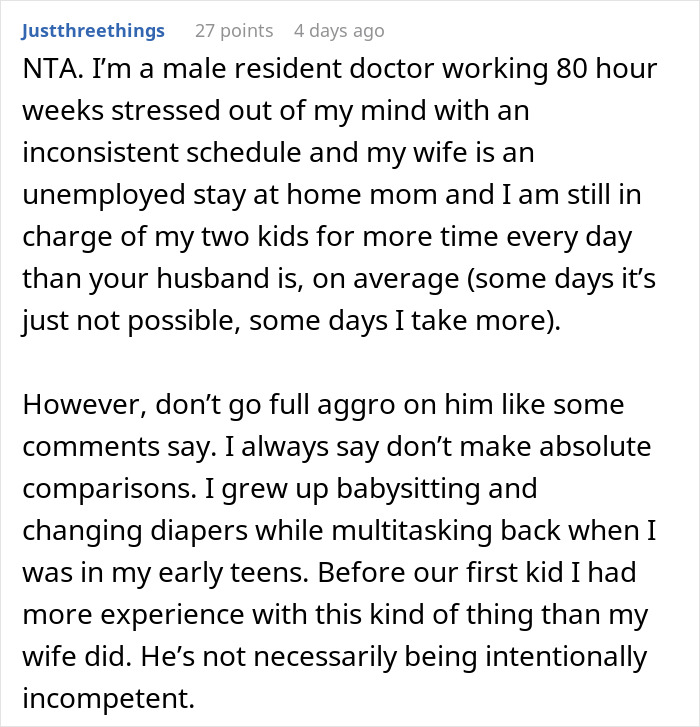

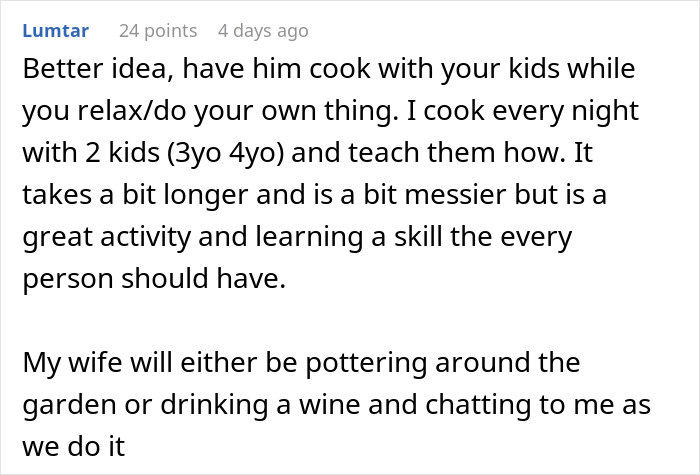

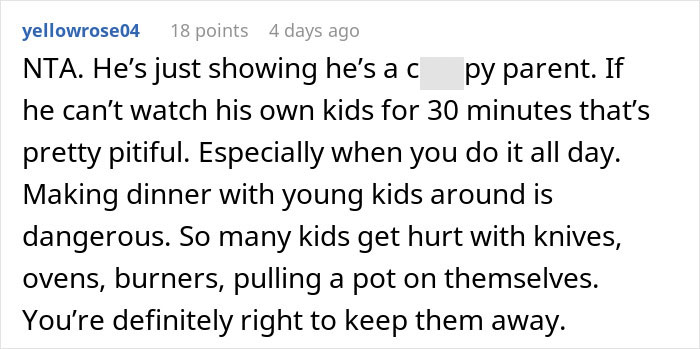
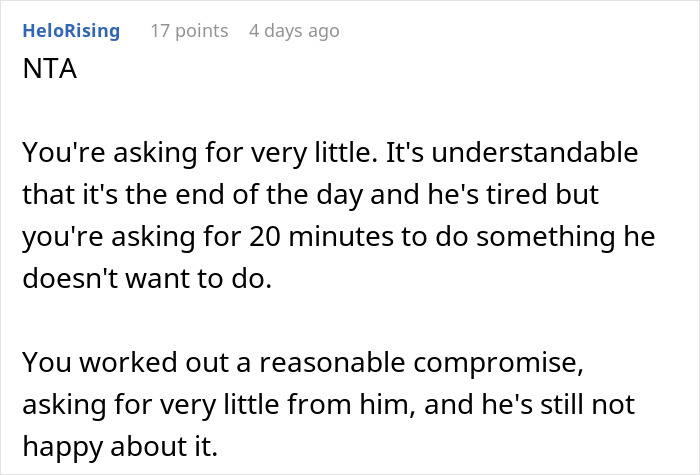

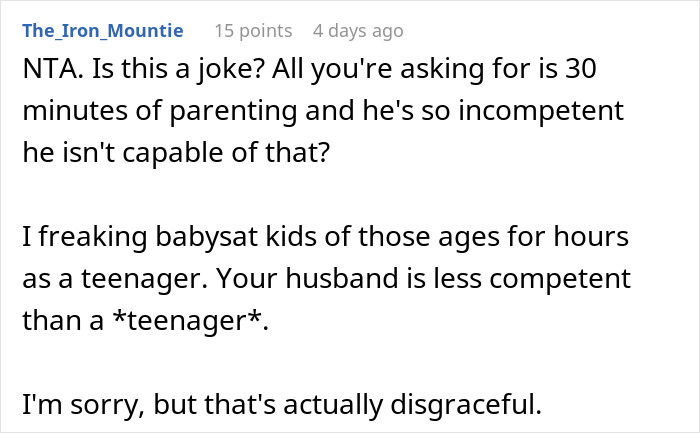
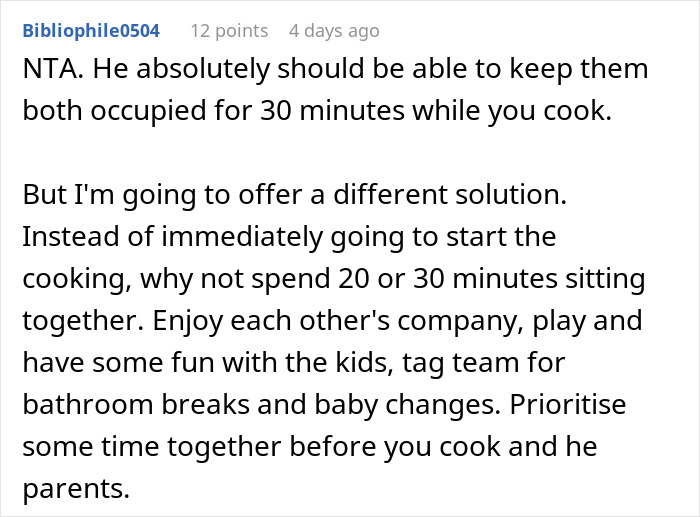



But some believe she should reevaluate the situation
